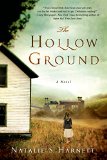Summary | Excerpt | Reading Guide | Reviews | Read-Alikes | Genres & Themes | Author Bio

A compelling story of love and loss in a western Pennsylvania mining town in the years after World War II.
A stunning follow-up to her bestselling debut,
Mrs. Kimble, Jennifer Haigh returns with
Baker Towers, a compelling story of love and loss
in a western Pennsylvania mining town in
the years after World War II.
Bakerton is a company town built on coal, a town of church festivals and
ethnic neighborhoods, hunters' breakfasts and firemen's parades. Its children
are raised in company houses -- three rooms upstairs, three rooms downstairs.
Its ball club leads the coal company league. The twelve Baker mines offer good
union jobs, and the looming black piles of mine dirt don't bother anyone. Called
Baker Towers, they are local landmarks, clear evidence that the mines are
booming. Baker Towers mean good wages and meat on the table, two weeks' paid
vacation and presents under the Christmas tree.
The mines were not named for Bakerton; Bakerton was named for the mines. This
is an important distinction. It explains the order of things.
Born and raised on Bakerton's Polish Hill, the five Novak children come of
age during wartime, a thrilling era when the world seems on the verge of
changing forever. The oldest, Georgie, serves on a minesweeper in the South
Pacific and glimpses life beyond Bakerton, a promising future he is determined
to secure at all costs. His sister Dorothy, a fragile beauty, takes a job in
Washington, D.C., and finds she is unprepared for city life. Brilliant Joyce
longs to devote herself to something of consequence but instead becomes the
family's keystone, bitterly aware of the opportunities she might have had
elsewhere. Sandy sails through life on looks and charm, and Lucy, the volatile
baby, devours the family's attention and develops a bottomless appetite for
love.
Baker Towers is a family saga and a love story, a hymn to a time and
place long gone, to America's industrial past and the men and women we now call
the Greatest Generation. This is a feat of imagination from an extraordinary new
voice in American fiction, a writer of enormous power and skill.

If you liked Baker Towers, try these:

The Secret Wisdom of the Earth
by Christopher Scotton
Published 2016
Timely and timeless, this is a dramatic and deeply moving novel about an act of violence in a small, Southern town and the repercussions that will forever change a young man's view of human cruelty and compassion.

by Natalie S. Harnett
Published 2015
Set amongst the deadly coal mine fires of 1960s Pennsylvania, The Hollow Ground is an extraordinary debut that will "grab you by the brisket and not let go" (Gary Shteyngart)